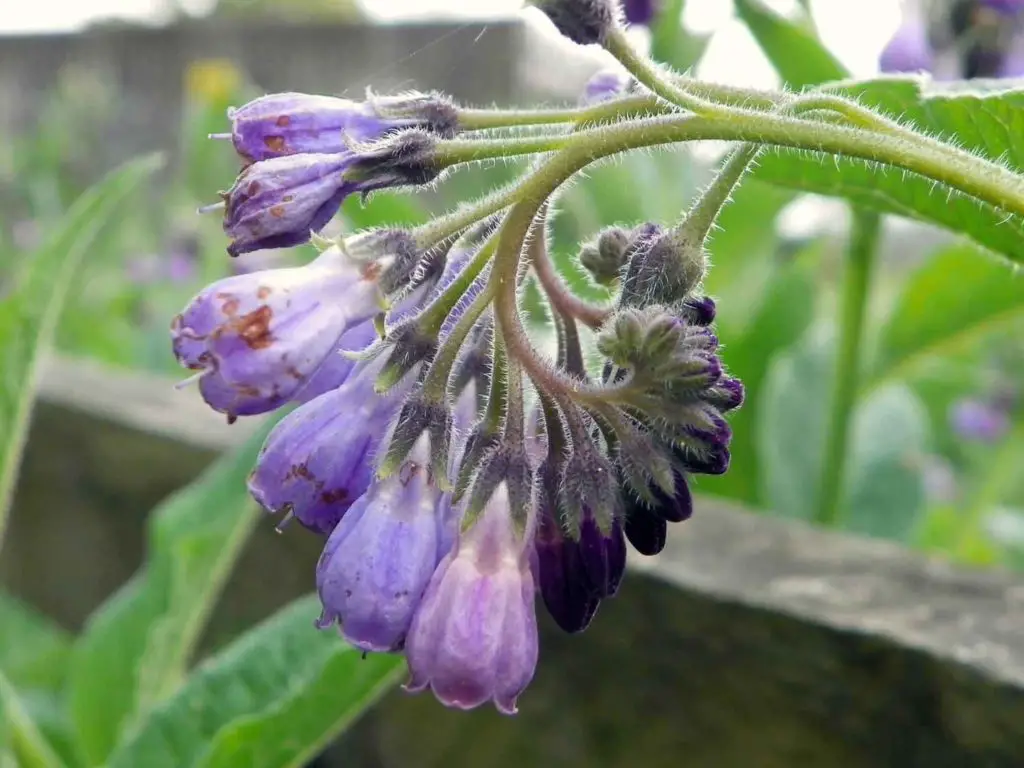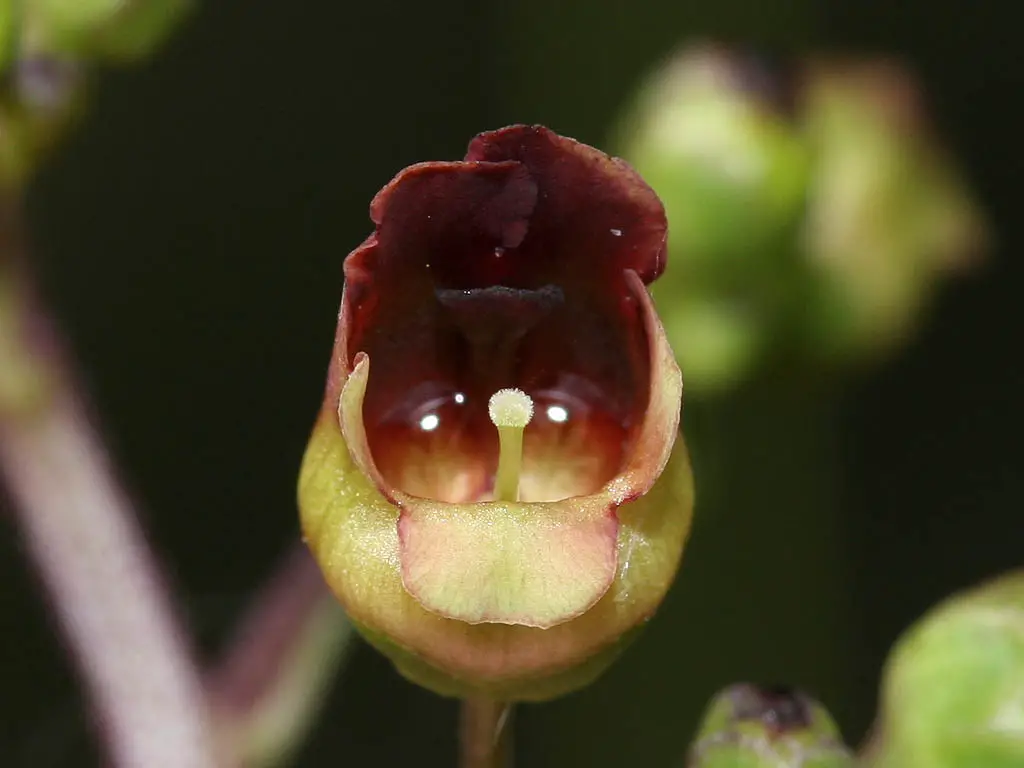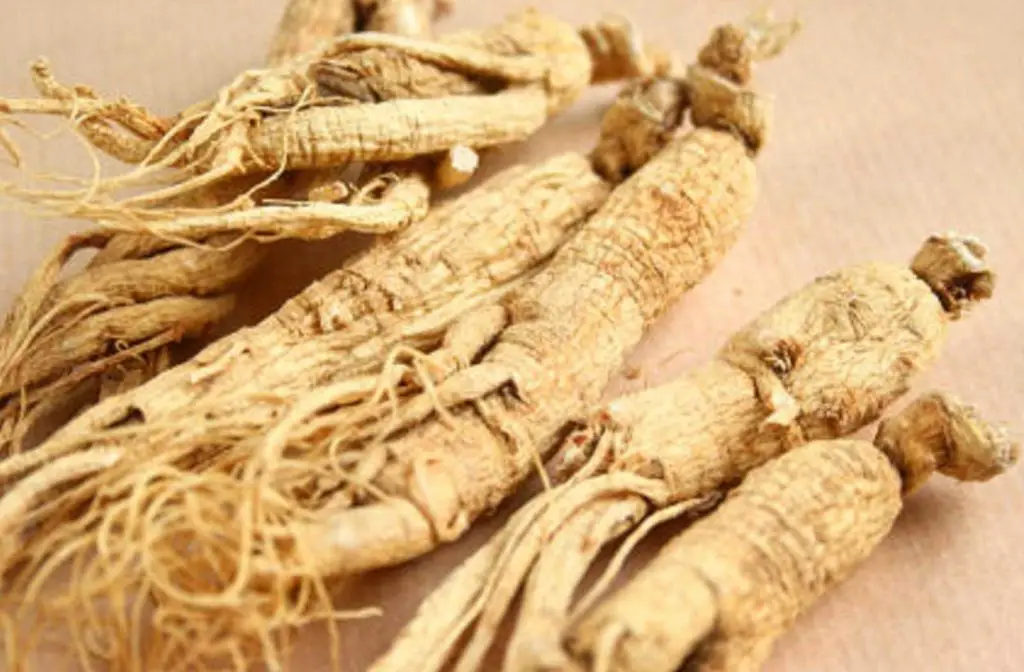What is Ganoderma Coffee?
Ganoderma lucidum is the binomial scientific classification referring to a species of mushroom, colloquially known as the reishi mushroom, or its Chinese title lingzhī. It is a saprotrophic fungus, meaning that it decomposes organic matter via extracellular digestion. It can be found on stumps, logs, or decayed trees, and it particularly prefers oak wood. The reishi mushroom thrives in warm climates and can be found throughout Asia, Australia, South America, Southern Europe, and parts of the Southeastern United States.
Ganoderma lucidum has a long and storied history of medicinal use throughout East Asia, particularly in China, Japan, and Korea. The mushroom is both culturally and clinically significant, as it has long been celebrated for its therapeutic properties as well as its “spiritual potency” in the Chinese mythos in particular. Presently, reishi enjoys a global reputation as the “king” of medicinal mushrooms, and many of its extracts are commercially available as nutritional supplements. Ganoderma lucidum can be consumed in various forms, most commonly including dried slices, extract powder, tincture solution, spore oil, coffee, and tea.
Reishi mushrooms are notable for their fan-like fruiting bodies, sleek varnished surfaces, and distinctive reddish-brown colors. The texture of the reishi mushroom in its natural state is known to be tough and woody, and its taste is quite bitter. Its cellular body contains a polysaccharide called chitin, which renders its skin indigestible for humans. As such, its bioactive and consumable properties can only be accessed via the dual extract, boil-and-ferment method.
Recently there has been a boom of interest among nutritionists in “mushroom coffee,” which is typically created with medicinal mushrooms and/or cordyceps. Given reishi’s 4,000+ year-long reputation as a superfood, the mushroom is often described as beneficial to consumers when blended and infused with coffee beans. The present invention of Ganoderma coffee follows a process of sterilizing coffee beans and infusing them with reishi via a fungal liquid tissue culture. By controlling the temperature, humidity, ands sterility of the coffee beans’ environment, growers can successfully enable mycelium growth on the coffee.
As of the present date, no scientific studies have been conducted related to the therapeutic efficacy of Ganoderma coffee specifically. However, there has been much clinical attention drawn to the therapeutic effects of Ganoderma lucidum and its bioactive components in general. Further, there is some research-based evidence to indicate that drinking coffee may ameliorate symptoms or prevent chronic illnesses such as Type 2 Diabetes, Parkinson’s Disease, and liver diseases. On the other hand, coffee consumption is also linked to high blood pressure.
Since no science-based research in direct relationship to Ganoderma coffee has been conducted, nutritionists are still learning about the safety of its consumption. For this reason, individuals are advised to speak to their primary doctors before beginning a supplemental regimen of reishi coffee.
Ganoderma Coffee Benefits and uses
Weight Loss
Though the direct impact of reishi coffee on weight loss is clinically unverified, components of the reishi mushroom have been observed to have anti-obesity effects. For example, in a study conducted at Chang Gung University in Gueishan, Taoyuan, Taiwan, an extract of Ganoderma lucidum mycelium was observed to reduce body weight, insulin resistance, and inflammation in mice with a high-fat diet. Data indicated that the mycelium extract achieved these anti-obesity impacts by reversing gut dysbiosis and reducing metabolic endotoxemia. Further, a similar study conducted at Chang Gung University one year later demonstrated that obese mice supplemented with reishi extract experienced an 8-16% decrease in both body weight and liver fat.
Fatigue
Ganoderma coffee has been reputed to ameliorate symptoms of chronic fatigue syndrome. In terms of clinical evidence, there is some to indicate that the spore powder of Ganoderma lucidum can alleviate fatigue in cancer patients undergoing endocrine treatment. Researchers at the Third Affiliated Hospital of Harbin Medical University in Harbin, China found that supplemented individuals with breast cancer demonstrated significant improvement in terms of fatigue after ingesting reishi spore powder. There is also some evidence to indicate that the reishi mushroom has anti-anxiolytic (anti-anxiety) effects, which may contribute to improvement in adrenal (stress-related) fatigue.
Memory
Ganoderma lucidum is often touted as the “mushroom of immortality,” given its anti-aging properties and slowing effects on age-related neurodegenerative disorders. For example, a study conducted at the University of Hong Kong found that an aqueous extract of Ganoderma lucidum attenuated Aβ-induced synaptotoxicity, which contributes to the loss of synaptic density proteins in individual neurons during the progression of Alzheimer’s disease. Given reishi’s anti-aging and neuroprotective activities, researchers have hypothesized that the mushroom’s components may improve memory function.
Further evidence indicates that caffeine (if ingested in healthy dosages) may have similar reversal effects in age-related neurological deficits. In a study conducted at the Universidade Federal de Santa Catarina in Florianópolis, Brazil, caffeine was found to refine olfactory discrimination and social recognition tasks in 12 and 18-month old rats. This and similar studies indicate that caffeine may ameliorate cognitive decline in relationship to age. In terms of Ganoderma coffee, these data may indicate that combining low quantities of caffeine with reishi may combat symptoms of neurological decline associated with aging, such as memory. However, clinical evidence clearly linking the ingestion of Ganoderma coffee with positive cognitive effects remains to be conducted.
Cancer
The reishi mushroom has gained much public and scientific interest for its possible anti-metastatic, anti-tumor, and general anti-cancerous properties. Researchers associated with the Cancer Research Laboratory at the Methodist Research Institute in Indianapolis, Indiana, for example, found that Ganoderma lucidum inhibited cancerous cell proliferation and induced apoptosis (systematic cell death) of human prostate cancer cells (PC-3). Another study conducted by the Shanghai Institutes for Biological Sciences found that a lanostane triterpenoid extracted from Ganoderma lucidum mycelia (GA-T) induced cytotoxicity on various human carcinoma cell lines, while toxicity to normal cell lines was low. Finally, researchers at Osaka City University in Japan found that a mycelium extract of Ganoderma lucidum inhibited metastatic growth in mice with Sarcoma 180 tumor growth.
Given reishi’s potential as an adjuvant cancer treatment, it can be hypothesized at ingesting reishi coffee at healthy levels may also impact cancer metastasis.
Diabetes
Ganoderma lucidum is known for its anti-diabetic potential. In study conducted at Xinxiang Medical College in Henan, China, diabetic rats were treated with reishi polysaccharides for thirty days. It was found that the diabetic animals experienced significant dose-dependent increases in nonenzymic and enzymic antioxidants and serum insulin levels along with reduced lipid peroxidation and blood glucose levels. Many other studies have yielded similar findings with laboratory rats and mice related to reishi’s anti-hyperglycemic and anti-diabetic effects. As a result it can be hypothesized that Ganoderma coffee may be beneficial to diabetic patients, though research directly addressing this point is needed.
Depression
There has been some existing research pointing to coffee and caffeine consumption as correlated to decreased risk of depression, as indicated by a meta-analysis published by the Australian & New Zealand Journal of Psychiatry. Ganoderma lucidum extract is also hypothesized to have some anti-anxiolytic and/or anti-depressant effects. Most notably, a study conducted at Ziauddin University in Karachi, Pakistan found that an ethanol extract of Ganoderma lucidum had anti-depressant effects on mice based on observational data. The neurological effects of reishi are not well-understood, but it is possible that the combined impact of Ganoderma lucidum and coffee beans may be effective as an adjuvant (non-primary) treatment for depression.
Cholesterol
In a cell culture study conducted at the Nestlé Research Centre in Lausanne, Switzerland, Ganoderma lucidum ganoderic acids A, B, and Y were found to inhibit cholesterol biosynthesis between lanosterol and lathosterol. Further, in a study conducted across various universities in Germany, France, and Switzerland, researchers found that Ganoderma lucidum significantly reduced TV, LDL and HDL cholesterol in mini-pigs, and also decreased overall cholesterol in hamsters. However, in terms of Ganoderma coffee it is worth noting that excessive consumption of coffee has been positively associated with cardiovascular disease in some studies (particularly related to men). That being said, the actual caffeine content in mushroom coffee is very low in comparison to its standard counterpart.
Blood Pressure
A study published by the Journal of Nutritional Science and Vitaminology found that Ganoderma lucidum mycelium contributed to decreased blood pressure and lipid levels in spontaneously hypertensive rats. Given reishi’s pro-metabolic, anti-diabetic, anti-cholesterol, and anti-hypertensive activities, the mushroom has potential as an adjuvant treatment for individuals with cardiovascular or weight-related health issues. Ganoderma coffee is hypothesized to yield similar effects, though it is worth noting (as previously mentioned) that coffee may have a negative impact on cardiovascular health if consumed in excess.
Anti-Aging
Ganoderma lucidum is reputed for its anti-aging effects and has been so for upward of 4,000 years. Recent research has pointed to reishi extracts (most notably aqueous extracts from its fruiting body) as capable of slowing down the progress of neurodegenerative diseases associated with age, including Alzheimer’s and Parkinson’s disease. Researchers have also identified reishi as a potential lifespan-extension agent via a polysaccharide known as Reishi Polysaccharide Fraction 3 (RF3), which is known to increase the expression of Toll-interleukin 1 receptor intracellular domain, which is associated with aging and innate immunity. Another study conducted in 2010 found that methanol spore extracts from Ganoderma lucidum (specifically, ganodermasides A and B) had similar lifespan-extension activities.
Immune System
Ganoderma lucidum is reputed for its immune enhancement activity. In a study conducted at the South China University of Technology in Guangzhou, results indicated that bioactive polysaccharides of the reishi mushroom extracted via ultrasonic/microwave-assisted extraction conditions improved hemolysis antibody levels and overall immune function in uncompromised mice. Another study at Chia-Nan University of Pharmacy and Science in Taiwan found that reishi mycelia stimulated innate immune response via nuclear factor (NF)-kB activation.
How much Ganoderma Coffee should I take?
Though clinical research is limited, it is generally considered safe to consume one to two cups of Ganoderma coffee per day. Individuals taking anti-coagulant medications should generally abstain from reishi supplementation altogether. Further, individuals with high blood pressure and/or diabetes may suffer unwanted side effects from Ganoderma coffee, given coffee’s potential to raise adrenaline hormone levels.
Ganoderma Coffee Side Effects, Safety, Dangers and Warnings
Ganoderma lucidum extract has received the GRAS (Generally Recognized as Safe) designation from the Food and Drug Administration in the United States. The most commonly reported side effects associated with reishi supplementation are dizziness, dry nose and throat, and skin irritation and/or inflammation. A smaller number of patients have reported nausea, vomiting, and diarrhea.
Patients with disorders of the blood or those taking anticoagulant medications should carefully discuss consuming Ganoderma coffee or any other reishi supplements with their physicians, as Ganoderma lucidum can cause blood thinning via a component called adenosine. In 2015, an individual who consumed one cup of Organo Gold coffee a day for two weeks found that his hemoglobin level dropped dangerously low and was forced to undergo multiple blood and platelet transfusions as a result. Thus, individuals taking antidiabetes, antihypertensive, and anticoagulant/antiplatelet medications should exercise caution and refrain from drinking mushroom coffee until consulting their respective physicians.
FAQ
How Much Caffeine is in Ganoderma Coffee?
Ganoderma coffee is growing as a popular alternative to regular coffee in part due to its reduced acidity and reduced caffeine levels. While standard coffee contains approximately 150-200 milligrams of caffeine, “mushroom” coffee has anywhere from 9 milligrams to 100 milligrams (and the upper end of the caffeine dosage spectrum is atypical).
How to Make Ganoderma Coffee?
Ganoderma coffee is a commercially available product, but it is possible to infuse coffee beans with reishi at home. The recipe first requires a reishi extract acquired via the dual-extract method, which is multi-stage and involves the extraction of water-soluble compounds via boiling water and the subsequent extraction of fat-soluble compounds via alcohol fermentation. The most common Ganoderma coffee recipe:
- Boil one tablespoon of reishi mushroom powder with 30 oz. purified water for 10-20 minutes.
- Take 5-10 tablespoons of ground coffee and place it in a French press
- Add the reishi water mix, which should be poured over the coffee grounds
- Steep for about 5 minutes.
- Put everything in a heated pot on medium-low for another 5 minutes.
- Blend using an immersion blender.
- Your Ganoderma Coffee is ready!
How much Ganoderma is in the Coffee Generally?
Typically it is stated that there should be about 250 mg of reishi in Ganoderma coffee.
Whats the difference between Ganoderma Coffee and Regular Coffee?
Whereas standard coffee is brewed with coffee beans (and possible trace amounts of ancillary ingredients such as wheat, soybeans, brown sugar, rye, barley, cocoa seeds, etc. if pre-packaged), Ganoderma coffee is brewed with coffee beans infused with reishi extract. While Ganoderma lucidum is particularly popular, mushroom coffee can also be infused with cordyceps, chaga, Lion’s mane (Hericium erinaceus), or Turkey tail (Trametes versicolor). Standard coffee is high in caffeine, whereas Ganoderma coffee has trace amounts and is reputedly less likely to exacerbate issues with anxiety, restlessness, and/or insomnia.
References:
http://aem.asm.org/content/71/7/3653.short
https://www.sciencedirect.com/science/article/pii/S0141813010001121
https://www.sciencedirect.com/science/article/pii/S0308814608013903
https://www.jstage.jst.go.jp/article/jnsv1973/34/4/34_4_433/_article/-char/ja/
https://www.sciencedirect.com/science/article/pii/S0378874105005234
https://www.sciencedirect.com/science/article/pii/S0006899307026480
http://www.neurobiologyofaging.org/article/S0197-4580(04)00302-1/fulltext
https://www.sciencedirect.com/science/article/pii/S0024320506006801
https://www.ncbi.nlm.nih.gov/pmc/articles/PMC5758346/
http://journals.sagepub.com/doi/abs/10.1177/0004867415603131
https://www.sciencedirect.com/science/article/pii/S0968089610000027
https://jamanetwork.com/journals/jama/article-abstract/397243?redirect=true






